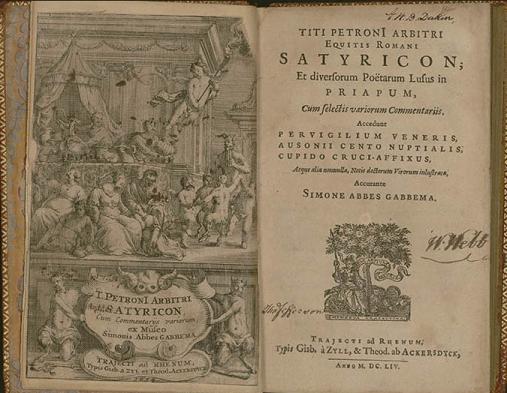…
“Quis furor,” exclamat, “pacem convertit in arma?
Quid nostrae meruere manus? Non Troius heros
hac in classe vehit decepti pignus Atridae,
nec Medea furens fraterno sanguine pugnat.
Sed contemptus amor vires habet. Ei mihi, fata
hos inter fluctus quis raptis evocat armis?
Cui non est mors una satis? Ne vincite pontum
gurgitibusque feris alios imponite fluctus.”
…
She shouts, “What fierce flung acid fury
deforms peace to war?
What got this gore remains our hands?
Are we the Greeks intent to fight
should Paris come, take off
and fuck our pretty pride?
Or Medea are we
chopping furiously our brother up
tossing him out piece by piece of our boat
bobbing toward father what fills him with horror
so that he can’t follow but lets us go
where rises and fall our bloody billows?
The power of War is Unreturned Love
returning as Death wanting only to touch
which Death does for Death must but just once—
O woe to us! Not soon enough
without the invite of your slish-slashing knives
as surely as this storm’s rising
you can’t stop but only watch coming in?
My foes, your fools, all littleness
if you think you do much when you hurry my death.
Why don’t you go piss in the howling sea
and be a bit mixed in that immensity
soon to encompass you with me
the same thing called to, pulled at
deeply in those waves?”
…
In 11th grade, my petite Latin teacher, Mrs. Price, who would later be tear-gassed in a march protesting the Vietnam War, gave me the Satyricon to read, the translation that was popular in the 60s by William Arrowsmith. She prefaced her giving by saying, “I wouldn’t normally do this.” And it’s true most teachers wouldn’t give their students pornography to read, but Mrs. Price was hipper than most teachers who taught at Cornwall High in good old Pennsylvania Dutch Lebanon County in 1966: she drank sherry, read the New Yorker, and knew I had an interest in that ancient era. When I was a kid, I found the metamorphic myths compelling, exciting and erotic; I could tell you who was who on Mount Olympus and in the Julio-Claudian family as well. I believed every word Tacitus and Suetonius (in Modern Library translations) told me and I could tell you who murdered who and how, and how every suicide was done. Did Antonia, the divorced wife of Mark Antony, who committed suicide, and mother of Antonia, who committed suicide, the mother of Claudius, who was poisoned by his wife, his niece Agrippina, who would be murdered by soldiers at her son Nero’s command—”Strike the womb first,” she told them—and then Nero too would commit suicide—or did his slave shove the dagger in because Nero faltered?—but getting back to that first Antonia, did she really die by swallowing hot coals? How would one possibly begin to go about that? Morbid? Nah, it was fun. Later on, I’d learn that Suetonius and Tacitus were like right wing types today, believing in a past that never existed (Ah, the Republic! Ah, the Constitution!). Think of the only biography of Bill Clinton surviving a thousand years from now as one written by William F. Buckley, Jr. or, even worse, Rush Limbaugh and you get the picture. Did Nero fiddle while Rome was burning? No; there weren’t even fiddles back then. But it’s fun to think he did.
I did the translation above when I started taking Latin classes at Temple University, fall of 1975. It is a lot longer than the original. I fanned it out and put a lot of my own anti-war feelings into it. But I think it’s an apt translation. I thought about changing it now: Or are we Medea/ furiously chopping our brother up? But the slightly choppy out of syntax way I did phrase it in my 20s is a lot like someone actually chopping something frantically up, and also it is like the sputtering of someone trying to stop others from fighting on a boat when a storm is coming. Hey, we need to put down our knives and attend to the sails! I also like how the billow rises (one billow) and fall (many billows). “What got this gore remains our hands?” doesn’t make much sense except it probably does when all there is is gore on your hands.
“All we are saying is give peace a chance,” John Lennon sang in 1969. Petronius was singing it on his lyre in 69. I’m sure someone will be singing it in 2069 as well. What about 2169 or 3169?
…

